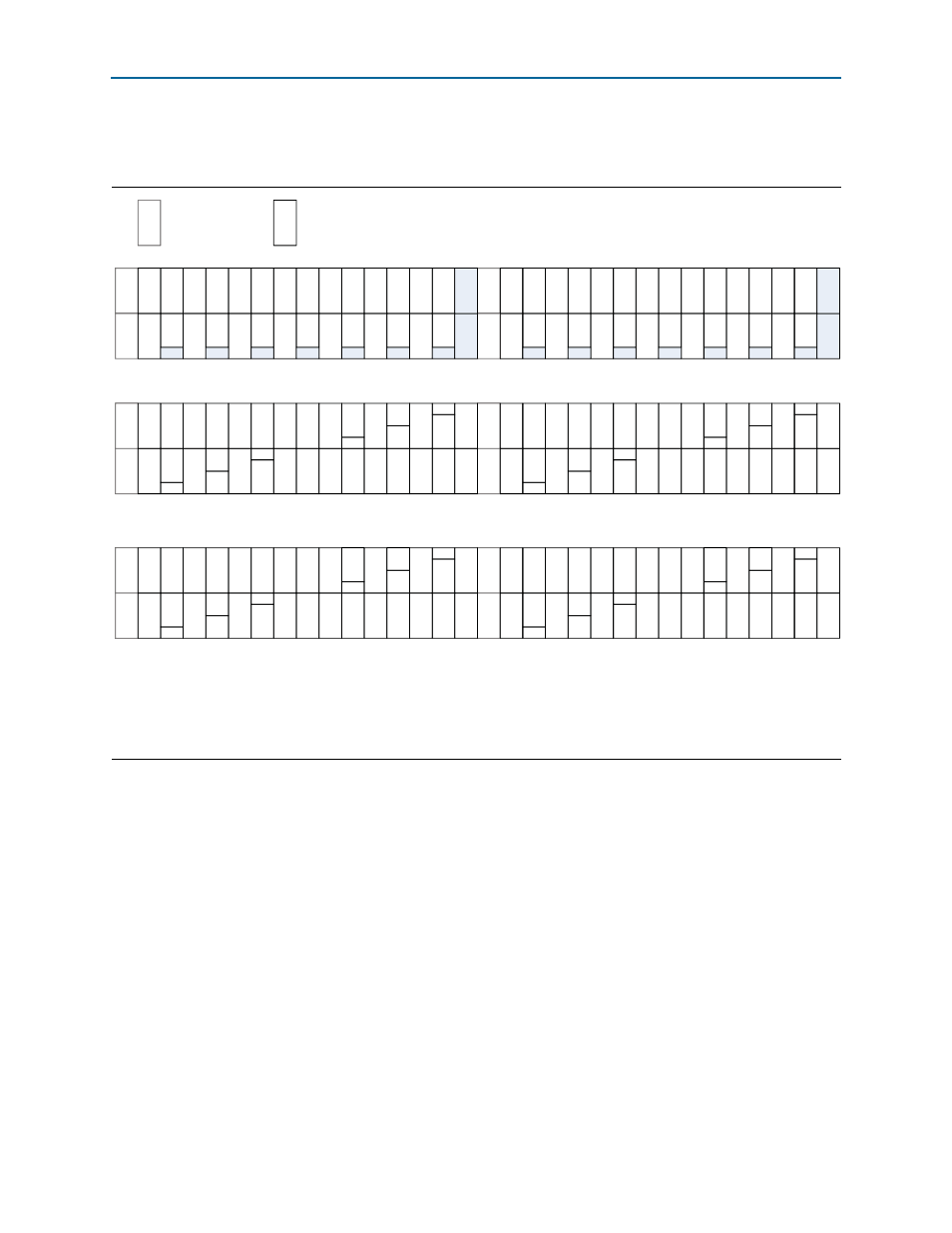Sixteen-bit width mode, Figure d–1, Shows – Altera CPRI IP Core User Manual
Page 176

D–4
Appendix D: Advanced AxC Mapping Modes
Advanced Mapping Mode Similarities and Differences
CPRI MegaCore Function
December 2013
Altera Corporation
User Guide
CPRI_MAP_TBL_CONFIG
register) has the value of two, 480 bits, or 60 bytes, of data are
sent or received on the data channel.
The example shows the mapping to timeslots, assuming a single AxC interface is
active, or more concretely, the contents of the Tx or Rx advanced mapping table. In
Advanced 1 mode, the Tx or Rx mapping table entries 7 and 15 are not available. In
contrast, in the other two advanced mapping modes, the Tx or Rx mapping table
entries 0 through 15 are valid.
Sixteen-Bit Width Mode
In 16-bit width mode, when
map_mode
has the value of 2’b01 or 2’b10, the initial 32-bit
sets of data in the CPRI frame pass through the AxC interface. However, the spare
bytes—bytes at the end of an IQ data block that do not fill another complete 32-bit
word in the CPRI frame, or bytes at the end of a CPRI frame that do not fill another
complete timeslot—are dropped in the outgoing data channel, and become reserved
bits in the CPRI frame after the data arrives on the incoming data channel; these bits
are expected to not contain valid AxC data in the CPRI frame.
Figure D–1. Example of Differences Between the AxC Advanced Mapping Modes in 15-Bit Mode
Note to
:
(1) This figure uses the following conventions:
* Each column illustrates two bytes in the CPRI frame.
* The label “c” indicates a control byte.
* A numerical label indicates the index of the corresponding table entry in the Rx or Tx advanced mapping table.
* The label “r” indicates a reserved bit or set of bits. Specifically in this example, this label indicates either two bits or a full byte of reserved bits.
c
c
0
0
0
0
1
1
1
1
2
2
2
2
3
3
3
3
4
4
4
4
5
5
5
5
6
6
6
6
8
8
8
8
9
9
9
9
10
10
10
10
11
11
11
11
12
12
12
12
13
13
13
13
14
14
14
14
map mode = 2'b01 15-bit samples
c
c
r
r
r
r
r
r
r
r
r
r
r
r
r
r
r
r
r
r
c
c
0
0
0
1
0
1
1
2
2
2
map mode = 2'b10 15-bit samples
c
c
3
3
3
4
4
4
4
5
5
5
5
6
6
6
6
7
7
7
7
8
8
8
8
9
9
9
9
10
10
10
10
10
11
11
11
12
11
12
12
12
13
13
13
13
14
14
14
14
15
14
15
15
1
1
2
2
3
5
6
9
13
15
map mode = 2 'b11 15-bit samples
c
c
0
0
0
1
0
1
1
2
2
2
c
c
3
3
3
4
4
4
4
5
5
5
5
6
6
6
6
7
7
7
7
8
8
8
8
9
9
9
9
10
10
10
10
10
11
11
11
12
11
12
12
12
13
13
13
13
14
14
14
14
15
14
15
15
1
1
2
2
3
5
6
9
13
15
c
N
Control Byte
8-bits of timeslot N
